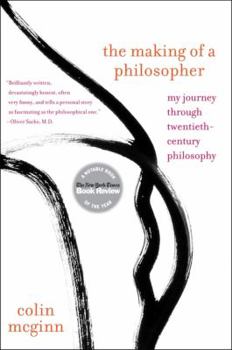The Making of a Philosopher: My Journey Through Twentieth-Century Philosophy
Select Format
Select Condition 
Book Overview
Part memoir, part study, The Making of a Philosopher is the self-portrait of a deeply intelligent mind as it develops over a life on both sides of the Atlantic.
The Making of a Philosopher follows Colin McGinn from his early years in England reading Descartes and Anselm, to his years in the states, first in Los Angeles, then New York. McGinn presents a contemporary academic take on the great philosophical figures of the twentieth century, including Bertrand Russell, Jean-Paul Sartre, and Noam Chomsky, alongside stories of the teachers who informed his ideas and often became friends and mentors, especially the colorful A.J. Ayer at Oxford.
McGinn's prose is always elegant and probing; students of contemporary philosophy and the general reader alike will absorb every page.






